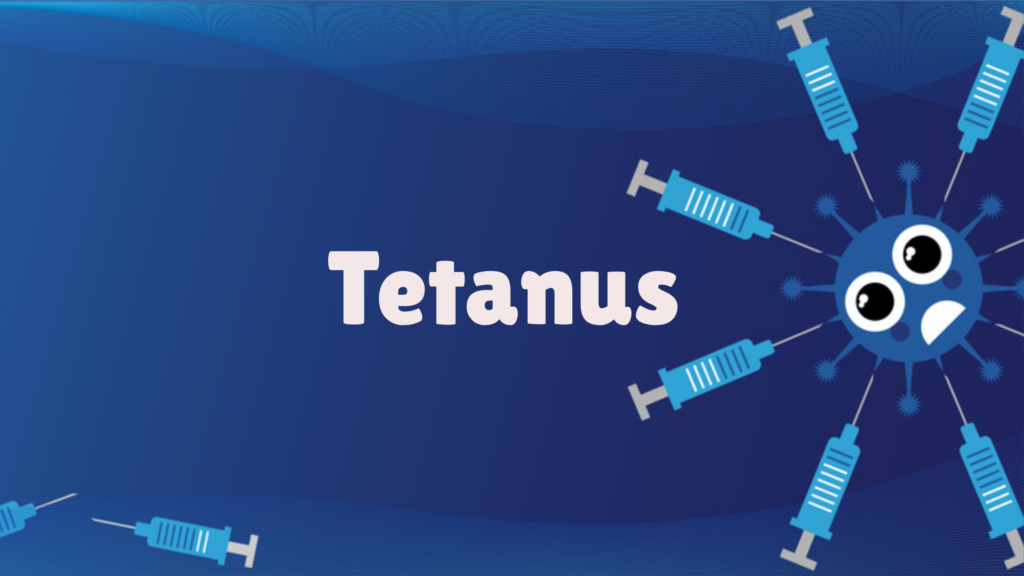What is Tetanus? ⚡🦠
Tetanus is a serious bacterial infection caused by Clostridium tetani, a bacterium commonly found in soil, dust, and animal feces. The bacteria produce a toxin that affects the nervous system, leading to muscle stiffness and spasms.
How is Tetanus Transmitted?
- Through wounds or cuts contaminated with Clostridium tetani spores
- Common sources: puncture wounds, burns, crush injuries, or wounds contaminated with dirt, manure, or saliva
- Spores enter the body and produce toxin under low-oxygen conditions
Symptoms
- Muscle stiffness and spasms, often starting in the jaw (called lockjaw) 😬
- Difficulty swallowing and neck stiffness
- Painful body spasms triggered by noise, light, or touch
- Fever, sweating, and rapid heartbeat
- Severe cases can cause breathing difficulties due to spasms in respiratory muscles
Diagnosis
- Based on clinical signs and history of injury
- No specific lab test; diagnosis is mainly clinical
Treatment
- Immediate wound cleaning and care
- Administration of tetanus immune globulin (TIG) to neutralize toxin
- Antibiotics to kill bacteria (e.g., metronidazole)
- Muscle relaxants and sedatives to control spasms
- Supportive care, including breathing support if needed
Prevention 🛡️
- Routine tetanus vaccination (part of childhood immunization and booster shots every 10 years) 💉
- Proper wound care and hygiene
- Prompt medical attention for any wounds or injuries
